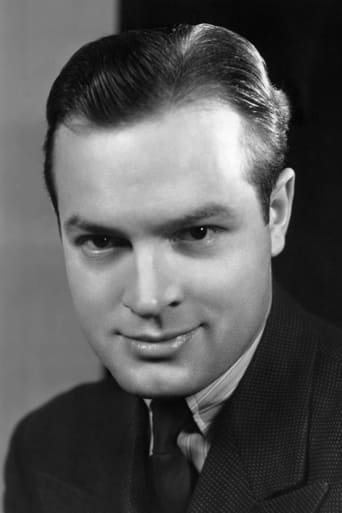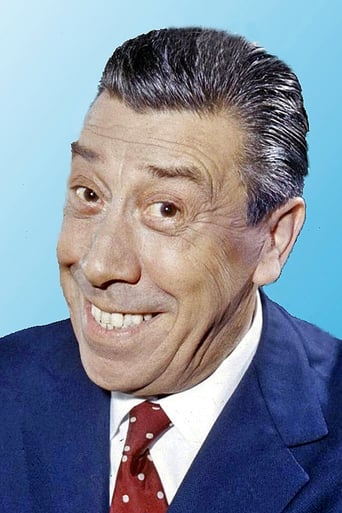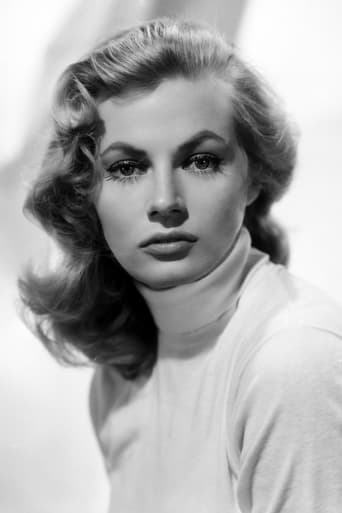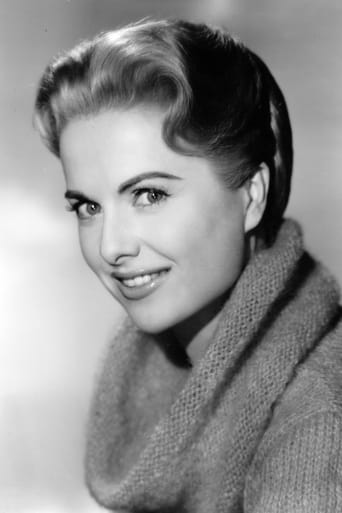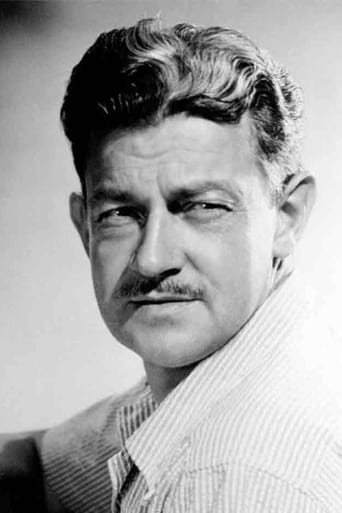Perry Kate
Very very predictable, including the post credit scene !!!
Nicole
I enjoyed watching this film and would recommend other to give it a try , (as I am) but this movie, although enjoyable to watch due to the better than average acting fails to add anything new to its storyline that is all too familiar to these types of movies.
Stephanie
There is, somehow, an interesting story here, as well as some good acting. There are also some good scenes
MartinHafer
This film has some VERY strange casting and I am not sure what the producer (Bob Hope) was thinking, nor what the film's writer (once again, Hope) had in mind. After all, why get the great French comic, Fernandel, to appear in the film in a major role...and yet he speaks French the entire time and Hope speaks only English. Often, they just hang out together and you wonder why--what keeps them together?! Couldn't they have gotten a French comic who also spoke English?! There's also another odd casting decision, but it works well and the part is small. For some odd reason, the writer/director Preston Sturges plays a French man. And considering that the film was made in France, I am not sure why they did this--though Sturges was surprisingly good in his small role. One other unusual role went to the lovely Anita Ekberg--who oddly got higher billing than the equally lovely Martha Hyer--even though her role was minuscule in comparison."Paris Holiday" begins on the cruiser, the Ile de France. There, Bob Hope meets Hyer and immediately begins making boorish sexual innuendos towards her. This sort of thing was not uncommon for a Hope film, but he comes on particularly strong here--so strong you wonder how she can fall in love with his character. This occurs thanks to Fernandel--who plays himself and a bit of a cupid. Now I did think it strange that Hope basically played himself, a famous American comic and movie star, yet he was called 'Bob Hunter'--yet Fernandel played himself. This ruse seemed very unnecessary.During the cruise, Ekberg breaks into Hope's room twice to search it. She's looking for something--but what? Later, once they are all in Paris, you learn that she's working with some counterfeiters and that they now are trying to kill Hope. Considering that his one-liners are VERY weak throughout the film, I really couldn't blame them! Can Hope extricate himself AND get the girl? Well, considering he wrote the film, I severely doubted it as I watched! My biggest complaint is not that Hope has such limp lines (which he wrote--so he has no one else to blame) but the complete waste of Fernandel. The Frenchman is cute here--but not all that funny (except when he's in drag late in the film--not THAT's something to see). I've seen him in a few other films and liked him very much and know he's capable of much more. Also, while some die-hard fans might disagree, as Hope aged, the quality of his films declined. His heyday was clearly the 1940s and by the late 50s, the films just weren't that funny. Now "Paris Holiday" isn't bad--it just isn't particularly funny. So, if you are a Hope fan, it's worth seeing--if not, you probably won't be particularly impressed--especially at the horrible scene involving the helicopter and the two ladies in the car (uggh!).
writers_reign
To give you an idea of how bad this is the highlight is a rip-off from Bluebeard's Eighth Wife, an early (1938) Billy Wilder screenplay. In Bluebeard Edward Everett Horton is attempting to get into a mental hospital to visit Gary Cooper. Twice he knocks at the door; twice the door is opened and shut on him. He tries again. Knocks. The door is opened. He barks like a dog. Ah, come in, m'sieu. This time around Fenandel is trying to get in to see hope but what Wilder and Lubitsch accomplished in under sixty seconds is here parlayed into a few minutes. Trivia buffs are always going to want to check out Preston Sturges playing a French playwright modelled on Sacha Guitry - if Serge Vitry doesn't help you nothing will. Having bombed two years earlier with The Iron Petticoat - a sort of Ninotchka without the style - Hope, who takes credit for the 'idea' tried a similar format again with no better results: in this movie Martha Hyer falls for Hope and winds up with him; the following year she rejected SINATRA in Some Came Running. Nuff said. There are a couple of half-decent one-lines but one liner does not a movie make.
theowinthrop
Bob Hope was, without a doubt, at the height of his film comedy popularity from 1939 through 1951. All of his films were pretty successful, and his cowardly, smart-aleck hit the right notes. His best notes were shared with Bing Crosby and Dorothy Lamour, but he did well on his own in films like "Where's There's Life", "Monsieur Beaucaire", and "The Princess and the Pirate". The last good films in this series were "My Favorite Spy" and "The Lemon Drop Kid". Then something happens. It is only beginning to be understood, for Hope's death last year sort of opened some hidden or shut doors. One thing that comes out is his (for want of a better term) "schizzoid" point of view regarding film acting. He saw Bing had won a best actor Oscar for "Going My Way" and could not understand why Bing did it and Bob could not. That Bing was better at straight acting than Bob never entered his mind. Hope felt that his writers could find a script for him that opened the door to an Oscar nomination (and, with luck, Oscar selection). If you notice in his best films there are moments when the writers and Hope do struggle to make his character rise to the surface on the plot line. But these moments are always brief - immediately he makes some snippy, "funny" comment that undercuts it. The reason comes out in his "schizoid" point of view. Hope could not stand leaving any dialog without a humorist zinger to cap it off. Imagine Lawrence Olivier as Hamlet or Othello or MacBeth, topping off a soliloquy with an old jest (possibly from "Joe Miller's Joke Book") and you can approximate this problem. The jokes were usually funny, but they deflated the dramatic moments in the films. After 1951 Hope still made movies, but his attention was now increasingly involved with television (radio was passing its peak years as THE home entertainment source). He still hoped to get that one elusive part. And to be fair to Hope his three best performances are in the 1950s after 1951: "The Seven Little Foys", "Beau James", "That Certain Feeling". The latter two are probably the best, with the biography of Mayor Walker actually tapping into his film personae almost perfectly for the dapper, funny, seemingly shallow Mayor. "That Certain Feeling" actually gave him a part where his smart alecky comments were compensated in the plot by his having psychological problems (an inferiority complex) and a rival (a superb George Sanders) to play off against (and in this case with - Sanders gives as good as he gets). Hope never rose above these two films (these three with "Foys").But Hope was approaching the end of his run of movie success with these three films. There had been signs of this even earlier. When he played opposite Hedy Lamarr in "My Favorite Spy", he met a type he was unused to in leading ladies. Most of his leading ladies were easy going and willing to let him carry the comedy for them (such as Virginia Mayo in "The Princess and the Pirate"). In Dorothy Lamour's case in the "Road" films she let Bob and Bing handle the comedy. With Lamarr he found a Hollywood star who insisted on equal time. When you see the film today it is very funny, and Lamarr never had as openly humorous a role in a film. But most of her footage ended up on the cutting room floor. Lamarr was quite angry about that, and never forgave Hope (and never appeared on any of his television specials, as other leading ladies of his did). In 1955 Hope stumbled again, doing a "Ninotchka" imitation called "The Iron Petticoat". It co-starred Katherine Hepburn. It makes one's eyes blink to see Hepburn's name opposite Hope - most of his leading ladies (even Oscar winners like Joan Fontaine) were not in Hepburn's league. Imagine Oliver Hardy romancing Joan Crawford or Greta Garbo in one of the Laurel and Hardy films. The same casting problem emerges (no problem if he romances Thelma Todd or Mae Busch though). Hope probably thought it was a great casting coup. This film pops up occasionally on British television (it was made in England), but has never appeared here. Both stars died last year, and I wonder if they both pressured American television not to show it. Hepburn, a gifted all around actress, probably did a good job. My guess is Hope tried to do to her what had succeeded with Lamarr. But Hepburn was bigger than Lamarr and it did not work. So, if my suspicion is correct, you really get two films, one starring Hope, one of Hepburn, tacked together. Hepburn, by the way, never showed up on a Hope special either. I wonder if she was even asked.Then came this disaster.I watched it once in the 1960s. It was incomprehensible to me, and given what films I had seen with Hope I wondered what had happened to him. Fernandel remained a total mystery for me, but I have seen him in some French films since, so I know he could act and perform very nicely. The plot was like half a dozen other plots reused over and over by Hope's writers - a brash coward is accidentally twisted into a criminal/spy conspiracy. The only thing I recall was that Preston Sturges' appearance as Serge Vitry was unique and short. I think that Hope may have hired him for the cameo because one of Hope's first big successes in movies was as Kidley, the hypochondriac millionaire in "Never Say Die", which Sturges wrote. But that point aside, this film was a bomb - the first really bad film in Hope's career and the one that pointed to the string of loser films of the 1960s and 70s.
Steve Tarter
Anita Ekberg's the highlight here in a comedy that needed a real villain for Hope and French clown Fernandel to play off. Instead we get a bunch of black-suited Keystone cops types who chase Hope around for the last half-hour of the picture. Lots of weak slapstick stuff in zis veddy zilly French movie.
